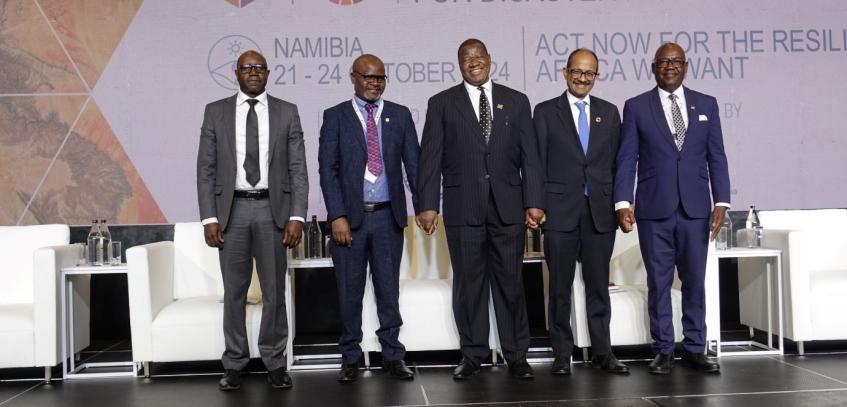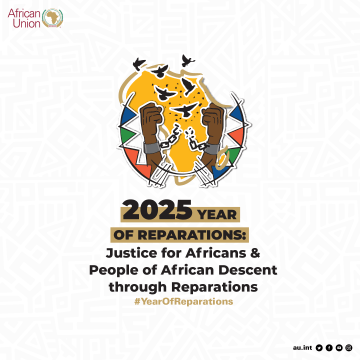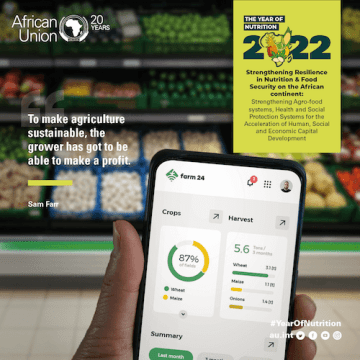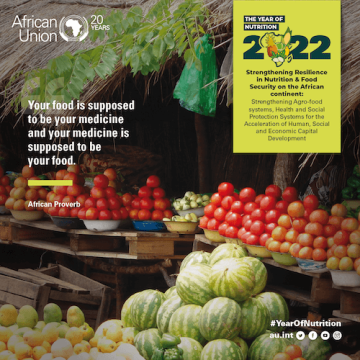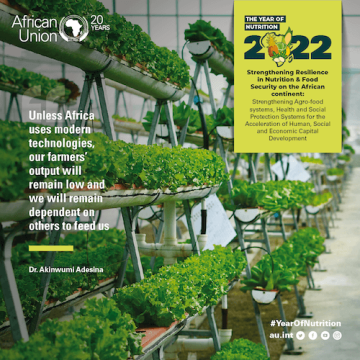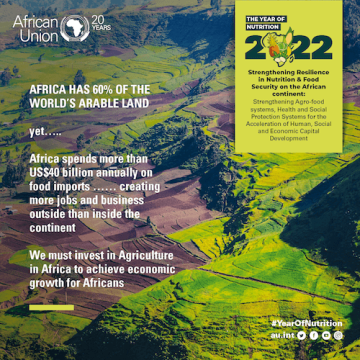Windhoek, 21-24 October 2024 – The United Nations Office for Disaster Risk Reduction (UNDRR), the African Union Commission (AUC), and the Republic of Namibia convened the 9th Session of the Africa Regional Platform for Disaster Risk Reduction (AfRP-9) alongside the 8th High-Level Meeting on Disaster Risk Reduction (DRR) in Windhoek, Namibia. This triennial event gathered Member States, Regional Economic Communities (RECs), civil society organizations, and development partners to review progress and share best practices in implementing the Sendai Framework for Disaster Risk Reduction across Africa. Dr. Valery Yao, APRM Technical Coordinator on State Resilience to Shocks and Disasters, represented the Mechanism at this vital meeting, which focused on the theme “Act Now for the Resilient Africa We Want.”
In his opening remarks at the Early Warning for All Multistakeholder Forum, Mr. Kamal Kishore, UN Secretary-General’s Special Representative for Disaster Risk Reduction, emphasized the importance of early warning as a fundamental component of disaster risk reduction. He urged a comprehensive, all-hazards approach to ensure effective prediction, message dissemination, and national preparedness for disaster response.
Mr. Harsen Nyambe, Director of AU Sustainable Environment and Blue Economy (SEBE), highlighted the increasing frequency and intensity of disasters faced by Africa between 2021 and 2022, arguing that reactive approaches to disaster management are unsustainable. He pointed to the successful implementation of the Africa Multi-Hazard Early Warning and Action System (AMHEWAS) Situation Room as a collaborative effort to enhance preparedness.
Mr. Anderson Banda, Director of the SADC Humanitarian and Emergency Operations Centre, noted that a key takeaway from AfRP-9 is the necessity for greater collaboration across regional and continental levels. He stressed the integration of disaster risk reduction, climate change adaptation, risk governance, and risk-proof investment into development plans.
Representing the Namibian Prime Minister, Dr Saara Kuugongelwa-Amadhila, the Deputy Prime Minister, Hon. John Mutorwa, highlighted that disasters pose an existential threat to humanity. He urged Member States to unify Africa’s voice for the upcoming 2025 Global Platform for Disaster Risk Reduction, scheduled for 2-6 June 2025 in Geneva, Switzerland.
The meeting addressed several critical areas in disaster risk reduction and climate change, including:
- The role of private business and finance in creating or reducing risk – Emphasizing the need for the private sector to balance economic growth with social and environmental responsibilities, the meeting urged governments to incentivize private sector investments while ensuring transparency about potential risks.
- Early Warning to Early Action System (EWEAS) – Participants discussed the necessity of transforming early warning systems to be impact-based, incorporating robust national databases on losses and damages, particularly at the local level.
- Nature-based solutions (NbS) – The potential of NbS, such as reforestation and wetland conservation, as effective strategies in the fight against climate change and disaster risk reduction was emphasized. Educating investors on the benefits of climate-friendly practices was also highlighted.
- Disaster risk reduction in Landlocked Developing Countries (LLDCs) – Representatives from LLDCs stressed their extreme vulnerability to climate change and cross-boundary disasters. The meeting called for enhanced risk management education, technology transfer, and regional cooperation to improve connectivity and economic resilience.
- Resource mobilization – The AUC delegation held discussions with Alpana Saha, Director of Partnerships, Governance, and Resource Mobilization at the Coalition for Disaster Resilient Infrastructure (CDRI). CDRI expressed interest in collaborating with the AUC on the Africa Urban Resilience Programme (AURP).
The high-level meeting culminated in the adoption of the Windhoek Declaration, outlining a path forward for Member States to fulfil their commitments to the Sendai Framework.

